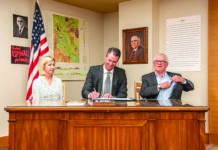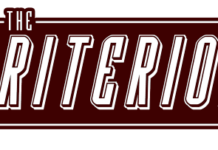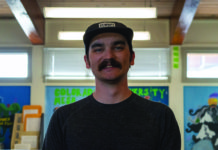
Residents of Grand Junction awoke this past Christmas Day expecting to spend valuable time with their families and friends. This time of celebration was short-lived, however, as locals discovered anti-semitic flyers dispersed around town.
The flyers were reported to be in sandwich bags along with coloring crayons, which insidiously suggests that the hate speech was geared toward children.
The League of Women Voters responded with an advertisement in the Daily Sentinel, which contained a statement of Jewish support from over 200 signatories. President John Marshall himself signed the declaration and even penned a Letter to the Editor shortly after to condemn the actions. The Grand Junction Police Department, however, was not able to locate the distributor(s) of the handouts.
Unfortunately, this was not an isolated incident. Antisemitism is ramping up all over the country. According to the Anti-Defamation League (ADL), 2022 was a record year of anti-semitic incidents with 3,697, a 36% increase from the prior year. The ADL estimates that there are 10 daily incidents of anti-semitic acts around the country. This comes off the heels of a record-high number in 2021. In fact, three out of the last five years surveyed have yielded the highest number ever recorded.
Local and national occurrences like these painfully demonstrate the need for constant vigilance against anti-semitic rhetoric and action. Colorado Mesa University (CMU) takes a leading role in spreading awareness of anti-semitism through its Holocaust Awareness Series.
Jewish people have wrongly been scapegoated and persecuted for an array of social and political ills since the reign of the Roman Empire. The Holocaust Awareness series works to historicize these efforts and then offers ways to combat them. Now in its 20th year, the series aims to both educate about the Holocaust and other genocides and to also spur local activism through a week-long presentation of informative lectures, film discussions and the Field of Flags display.
Associate Professor of History Vincent Patarino originally founded the series in 2004 after witnessing a string of hateful activity in the Grand Valley.
“I went out to my driveway and there was a baggie with a rock and a flier that was extremely racist and anti-semitic, talking about how ‘the whites need to make sure that they stand up to the Jews and the Blacks’ […] At the same time, there were a number of Jewish synagogues graffitied. I did some research, and found that similar events were going on in the Front Range too,” Patarino said.
Patarino teamed up with university faculty and began to organize informative lectures in the spring of 2004. Patarino, faculty and student clubs/organizations then incorporated a Field of Flags display to educate and memorialize the lives taken during the Holocaust. Eventually, the series expanded to include speeches from Holocaust survivors themselves.
“[The goal] is to look at the two ends of the series: the educational end about genocide more generally, but also the activist part of it. We present what’s going on, and then discuss what kinds of things we can do to keep this from happening, or being aware of where that slippery slope toward authoritarianism is. Because it often happens without people necessarily doing anything about it,“ Patarino said.
This year’s series began with the construction of the Field of Flags on Sunday, April 2. There are over 2,000 multi-colored flags, which represent the different groups targeted by the Nazis during this regrettable era of history. Each flag itself accounts for 5,000 individuals murdered by the German state.
This was followed by a moment of silence and official recognition as a sacred site the next day at 10:50 a.m. There was also a 90-minute session discussing the historical and modern manifestations of anti-semitism, presented by Director of the ADL Mountain States Regional Office Scott Lewis in Houston Hall room 139 at 6:30 p.m.
The series continues on Wed, April 5, with a keynote presentation of “The Last Laugh,” a documentary that discusses the ethics of talking and joking about the Holocaust, at Avalon Theatre. After the film, there will be an open discussion with Marshall, Trustee David Foster and the film’s producer Ferne Pearlstein, who is an award-winning Jewish filmmaker. Doors open at 5 p.m.
Beforehand, Assistant Professor of Spanish Cecilia Battauz will present “Negotiating the Meaning of Genocide” in Houston 139 on April 5 at 4:30 p.m. Additionally, CMU’s chapter of Phi Alpha Theta will present a screening and discussion of “Hotel Rwanda” directly after. These sessions aim to inform viewers about more modern genocides and how to reconcile with them.
Lastly, the week concludes with a final film presentation and discussion. “My Italian Secret: The Forgotten Heroes of the Holocaust” uncovers the lengths Italian citizens went to harbor and assist Jewish refugees. This screening will be held at 6:30 p.m. at the Tomlinson Library Event Center.
“We need to recognize that while free speech is an important element of who we are as a campus and nation, we also need to realize when it goes over the line and to be able to talk about it. In other words, when you don’t talk about it, and you just ignore what’s going on, that’s when the danger begins,” Patarino said.
In today’s climate of increased hate, participating in education/activist events like the Holocaust Awareness Series are all the more important.



